When Black Folks Get Ahold of Country Music
In this second installment of Hallowed Sound, journalists from the USA TODAY Network examine the state of race in country music, scour the South in search of untold stories and shine a light on a new, eclectic generation of Black artists.
NASHVILLE, Tenn. – As she waited to go on stage, Mickey Guyton found herself in a position that not even the most confident up-and-coming country singer would envy. It was late July at the star-studded "CMA Summer Jam," and Carrie Underwood was treating the sold-out crowd to a parade of her hits, as fans in sleeveless flannel shirts hoisted beer cans to songs like "Cowboy Casanova."
Then as midnight neared, the superstar paused her set to bring out a lesser-known artist, who'd go it alone to sing a song that no one heard before.
This scenario was particularly daunting for Guyton, a country singer who's dared to speak her truth about being Black in America – and has been confronted with the consequences.
As she approached the microphone, Guyton says, "I felt like I was looking out at the people that were in my Instagram DMs," recalling messages such as "Take your Black ass out of country music."
"So I was terrified. For all I knew, those people could have booed me out of there."
Instead, Guyton heard the opening chords of her song "All American." She began singing about the different icons that define the country: "daisy dukes, dookie braids, James Brown and James Dean," while adding, "We got the same stars, the same stripes/ Just wanna live that good life/ Ain't we all all-American?"
Three minutes later, to her relief, she heard the unmistakable sound of cheers.
"We risked it all in that moment," she says.
It's no secret that for nearly a century, the country music market has been almost exclusively the domain of white performers – even as the genre owes tremendously to Black musical traditions. But today, in spite of the hurdles, the path for Black voices in country music appears more open than ever.
The decision-makers on Nashville's Music Row had a brazenly low bar to clear. Out of nearly 200 artists signed to the six largest country labels, 10 are Black. That group includes platinum-selling star Kane Brown, two-time chart-topper Jimmie Allen and Guyton, a recent Grammy nominee. Dozens more talents are building careers in Americana, independent country and roots music fields: Allison Russell, Amythyst Kiah and Yola among them.
Their sound and sensibilities run the gamut, but each is doing critical work: shattering preconceptions, broadening their genres' horizons or presenting audiences with urgent, uncomfortable truths. And they're inspiring others to do the same.
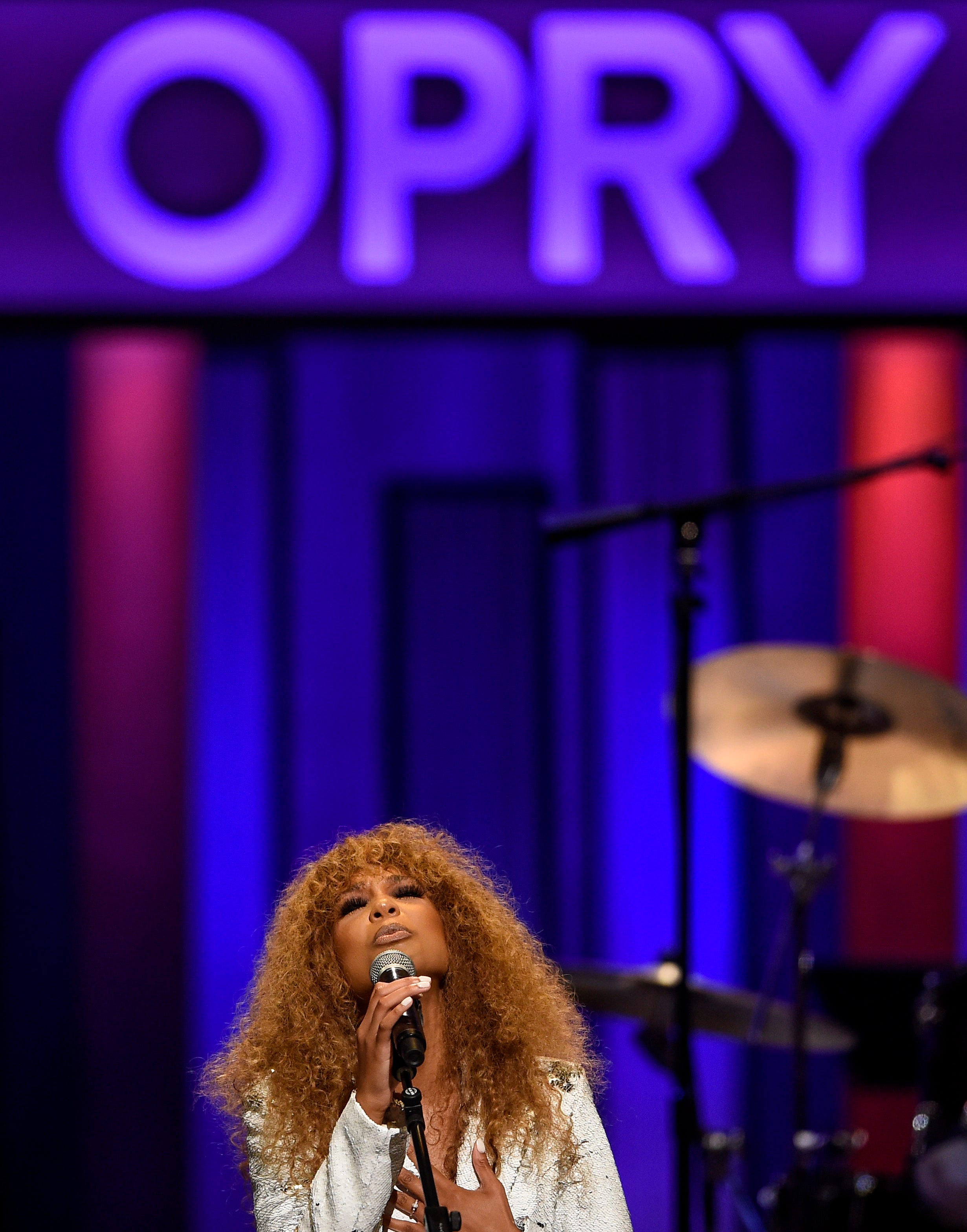 Henry Taylor/The Tennessean
Henry Taylor/The Tennessean
I knew that I loved country music, and I was going to do it whether there was someone that looked like me or not.
"I knew that I loved country music, and I was going to do it whether there was someone that looked like me or not," says Tiera, who was recently signed to the Valory Music Co. by Scott Borchetta, who gave Taylor Swift her first record deal.
"But it's really nice to kind of be that inspiration for other people, because I think there's room for everybody. And there's so much talent."

There have been similar figures of inspiration since the country music business first got rolling, though they could be difficult to spot.
When the Grand Ole Opry went on the air in 1925, Black harmonica player DeFord Bailey was among the show's first stars. Ray Charles brilliantly bridged the gap of country and R&B with his landmark 1962 album "Modern Sounds in Country and Western Music" – a feat that will soon earn him induction in the Country Music Hall of Fame. Linda Martell became the first Black female country singer to perform on the Opry stage in 1969, the same year her single "Color Him Father" cracked the Top 25.
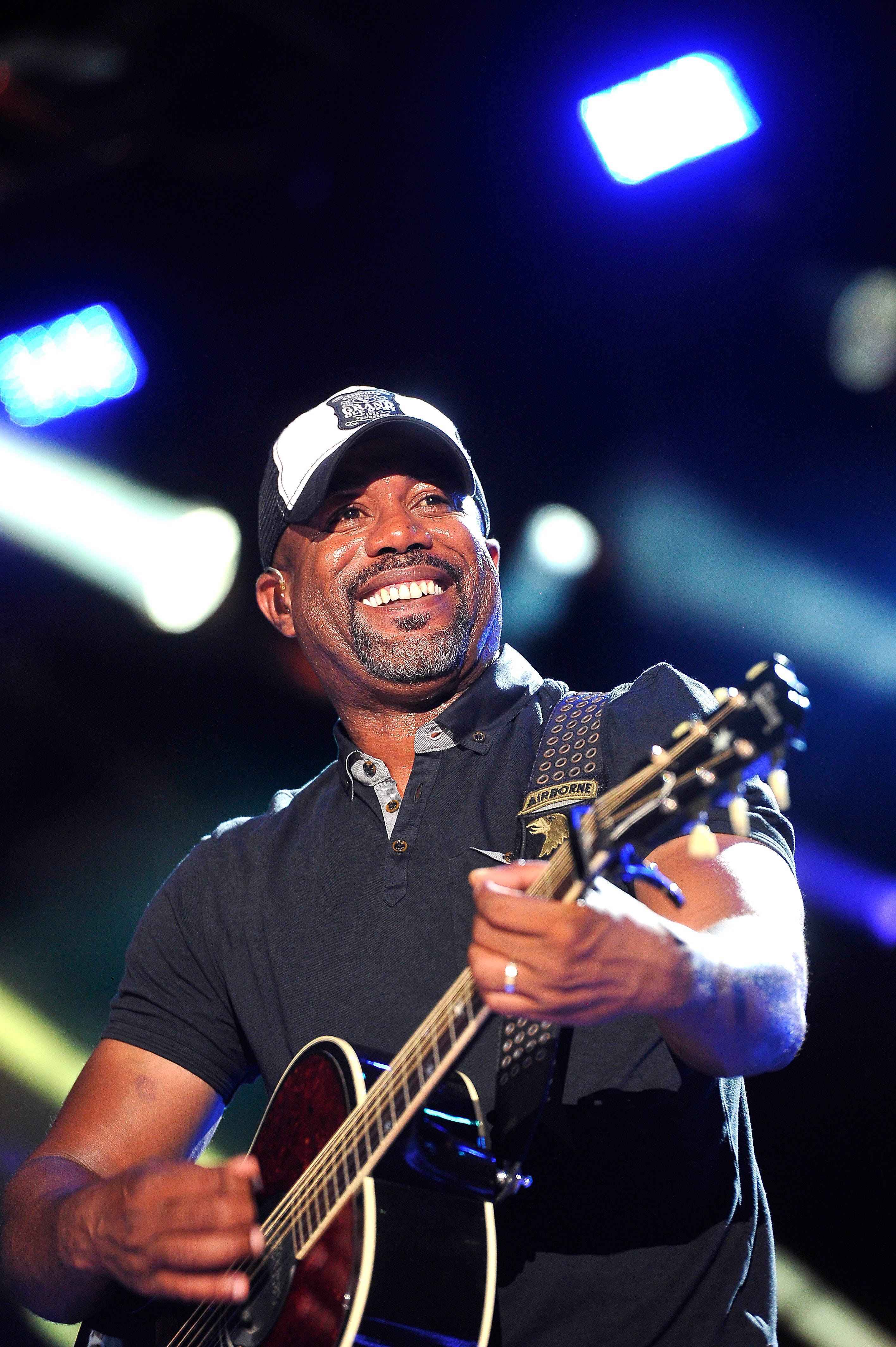
In a league of his own, of course, is the late Charley Pride – likened to Jackie Robinson for breaking barriers and quickly rising to the top of his field. His 1971 signature "Kiss An Angel Good Mornin'" was one of more than 50 top 10 country hits he enjoyed, and he was inducted into the Country Music Hall of Fame in 2000.
At the same time, Pride's lone success appeared to be enough for the industry at large. While a handful of artists would sign deals and make their way onto the charts in the decades following Pride's debut – from Stoney Edwards and O.B. McClinton to Trini Triggs, Cowboy Troy and Rissi Palmer – country music didn't have another Black superstar until Darius Rucker arrived on the scene. Even after making one of the best-selling albums of all time with his rock group, Hootie & the Blowfish, the singer faced an uphill battle when he emerged on the scene in 2008.
"It just felt like Charley Pride opened the door, and they tried to close it for 25 years," Rucker says. "We came in and kicked it in."
It just felt like Charley Pride opened the door, and they tried to close it for 25 years. We came in and kicked it in.

Still, whatever door – or lack thereof – that was there wasn't widely acknowledged by Nashville for another 12 years. In 2020, the protests in the wake of the deaths of George Floyd, Breonna Taylor and others led to the industry-wide "Blackout Tuesday" initiative on June 2.
All of country music's major labels took part: "We stand together with our Black community against all forms of racism, bigotry and violence," Universal Music Group posted on social media. After hundreds of industry members signed up to watch a Zoom discussion with several Black members of Nashville's music industry, the organization Nashville Music Equality was founded, aiming to create an anti-racist environment on Music Row.
"Progress is a process," says organization president Shannon Sanders. "I applaud us for where we are (a year later) and the people who have made an effort to awaken to certain disparities. But we definitely have a ways to go."
That was made painfully clear Feb. 2, when video emerged of Morgan Wallen – country music's biggest new star – using a racial slur outside of his home in Nashville.
It was a historically damning moment for the country music brand, and the industry response was swift and seemingly drastic. His label, Big Loud Records, announced it was "suspending" the contract of their flagship artist. iHeartMedia, the nation's largest radio conglomerate, took Wallen's songs out of rotation at 800-plus stations. He was banned from the ballot of the Academy of Country Music Awards and CMT Music Awards, and streaming services scrubbed him from their official playlists.
Wallen issued apologies, canceled all of his scheduled concerts and largely vanished from public view. He re-emerged two months later, still repentant but telling fans he'd see them "sooner rather than later." In July, he made a spontaneous appearance at a Luke Bryan concert in Nashville and was greeted by a minute-long standing ovation from the sold-out crowd.
That same month, he gave his first interview since the incident to "Good Morning America." Asked whether he believed country music had a "race problem," Wallen responded, "It would seem that way, yeah. I haven't really sat and thought about that."

There was a more heartening television moment for the genre over the summer. On the 2021 CMT Music Awards, Linda Martell was recognized as a trailblazer with the "Equal Play" award, while soul legend Gladys Knight joined Guyton and country-rap fusionist Breland for a performance of "Friendship Train." In the night's most viral moment, R&B singer-songwriter H.E.R. teamed up with Chris Stapleton on "Hold On" – one of her songs, not his, CMT's Leslie Fram points out.
"It was probably the most rewarding thing that we've ever done," says Fram, the network's senior vice president of music strategy. In recent weeks, the network has premiered a "CMT Giants" documentary on Pride's life and legacy, as well as a "Crossroads" concert special featuring rap star Nelly collaborating with country acts Florida Georgia Line, Breland and others.
"If you look at the history of the CMT Music Awards, diversity has always been part of it," Fram says. "But we feel like now is the time to really focus and drill down on this. It's important for the future of country music."
One of the genre's weightiest institutions has made similar efforts. Nearly 100 years after DeFord Bailey made his Grand Ole Opry debut, the show has invited several Black artists to do the same in 2021, including Tiera, Allison Russell and Amythyst Kiah.

At her Opry debut in June, Kiah chose two songs to perform. One was "Will The Circle Be Unbroken," a hymn reworked by the Carter Family nearly a century ago that serves as country music's traditionalist anthem.
The other was her self-penned, autobiographical blues-rocker "Black Myself," which put the Opry's longtime house band and background singers in bold new territory — with assurance from Kiah that they were up to the task.
"I don't creep around, I stand proud and free, 'cause I'm Black myself," Kiah sang on the Opry stage. "I go anywhere that I wanna go 'cause I'm Black myself."
"In this time when more and more Black people, people of color and LGBT people are really seeing the full potential of what they can pursue musically, I'm just so happy that the Opry is seeing that," Kiah says.

Two years ago, Guyton wrote a similarly blunt and beautiful song, recalling her childhood in Texas. "Broke my heart on the playground when they said I was different/ Now I'm all grown up, and nothing has changed. … If you think we live in the land of the free/ You should try to be Black like me."
Guyton largely kept "Black Like Me" to herself until the spring of 2020, when the national protests moved her to share a snippet on social media. Public demand – and Spotify, which requested the song from her label – led to its release on June 2. Later that year, "Black Like Me" earned Guyton her first Grammy nomination.
But despite its critical raves, high placement on streaming platforms and performances on multiple awards shows, "Black Like Me" never made it onto Billboard's Country Airplay chart.
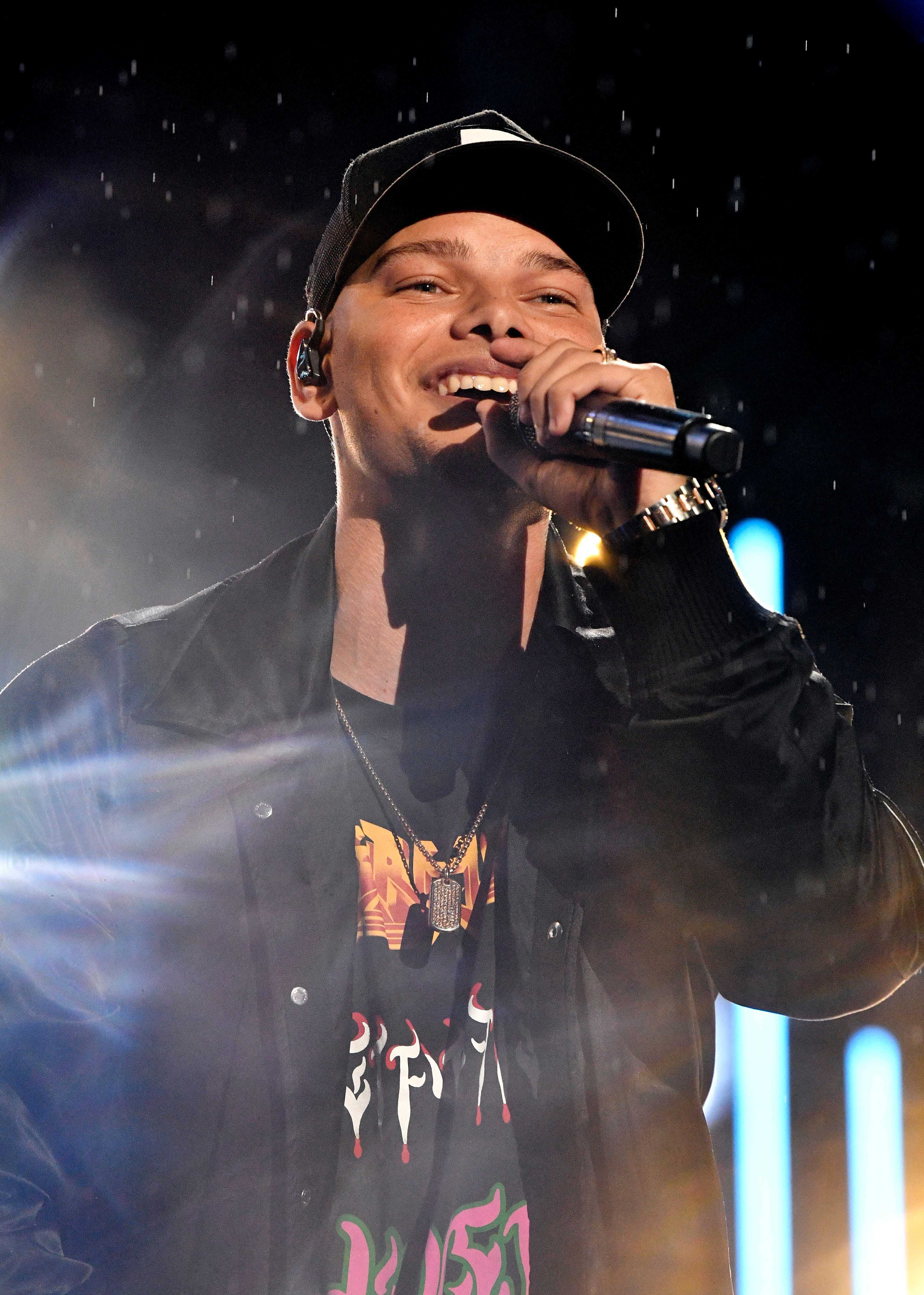
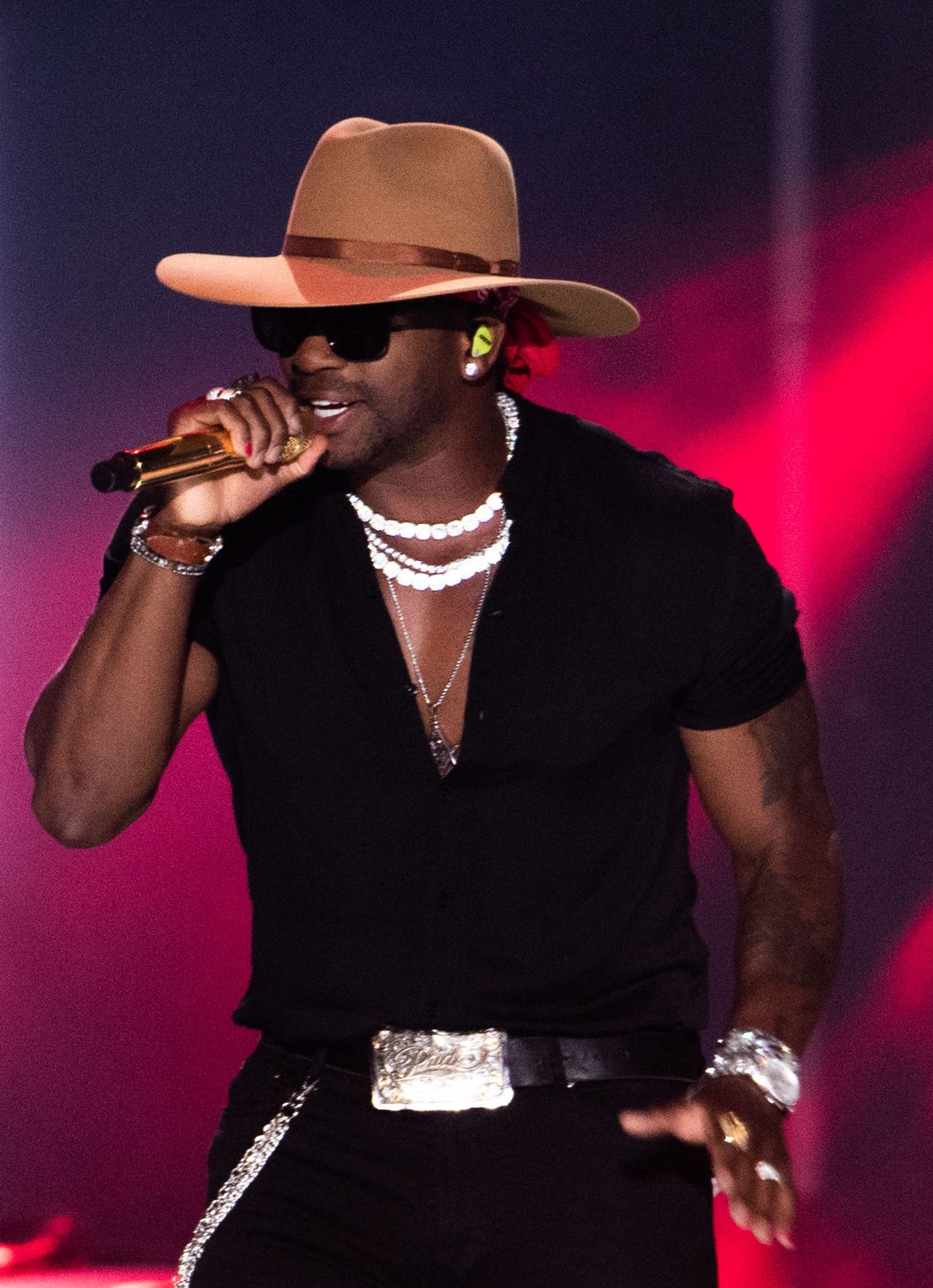
Artists who are Black, indigenous and people of color received a 2.3% share of country radio airplay in the past 19 years, according to a 2021 study released by musicologist Jada Watson. Among more than 11,000 songs played on country radio stations from 2002 to 2020, just 133 of them were by Black artists.
That number would be considerably smaller without Kane Brown. In the past four years, the 27-year-old has enjoyed six No. 1 hits at country radio, and his first two albums have gone double platinum and platinum, respectively. He's also one of country's biggest musical ambassadors, teaming with pop, rap and EDM acts including Khalid, Swae Lee and Marshmello.
After finding exceptional success with Jimmie Allen – whose first two singles topped the Country Airplay chart – BBR Music Group/BMG Nashville president Jon Loba says it was "an absolute fistfight" to convince country radio stations to pick up Blanco Brown's 2019 single "The Git Up."
Soon after Lil Nas X's "Old Town Road," the song (and accompanying dance) blended elements of country, line-dancing and hip-hop and was an immediate global sensation. But while digital sales and streaming shot it to the top of Billboard's Hot Country Songs chart, it stalled at country radio at No. 44.
"It's the hardest I've ever had to fight for something that had so much connection," Loba says.
"…I think there was a lot of reflection once that whole phenomenon had passed. A lot of the smart guys on radio said, 'You know what, we probably should have given that more of a chance. It was such a cultural moment. We could have benefited from that.'"
Henry Taylor/The Tennessean
Breland recently hit the Country Airplay chart – as a featured artist on Dierks Bentley's "Beers On Me." His 2019 debut "My Truck," a rap-country blend that arrived on the heels of "Old Town Road," cracked the Top 25 of Hot Country Songs.
"I'm taking a creative risk every time I put a song out that doesn't really fit cleanly within the mold," Breland says. "Because you have to find a spot for those songs. But luckily, the people have been so willing to embrace it. I think the actual listeners have been the biggest champion, and from there, the gatekeepers and the decision makers, they respond to what the people tell them. It's been really cool to watch that happen."

On Sept. 24 – a decade after signing her record deal – Guyton was to finally release her debut album. It's called "Remember Her Name," inspired partly by the "say her name" refrain of those protesting for Breonna Taylor. It's also a call, for herself and others, to remember who they are at their core. "Remember that girl that used to be so strong," she explains. "That used to take conflict like it was nothing, and leaned into it."
When she came to Nashville a decade ago, Guyton says, she couldn't have predicted the role she'd eventually take in the country music landscape.
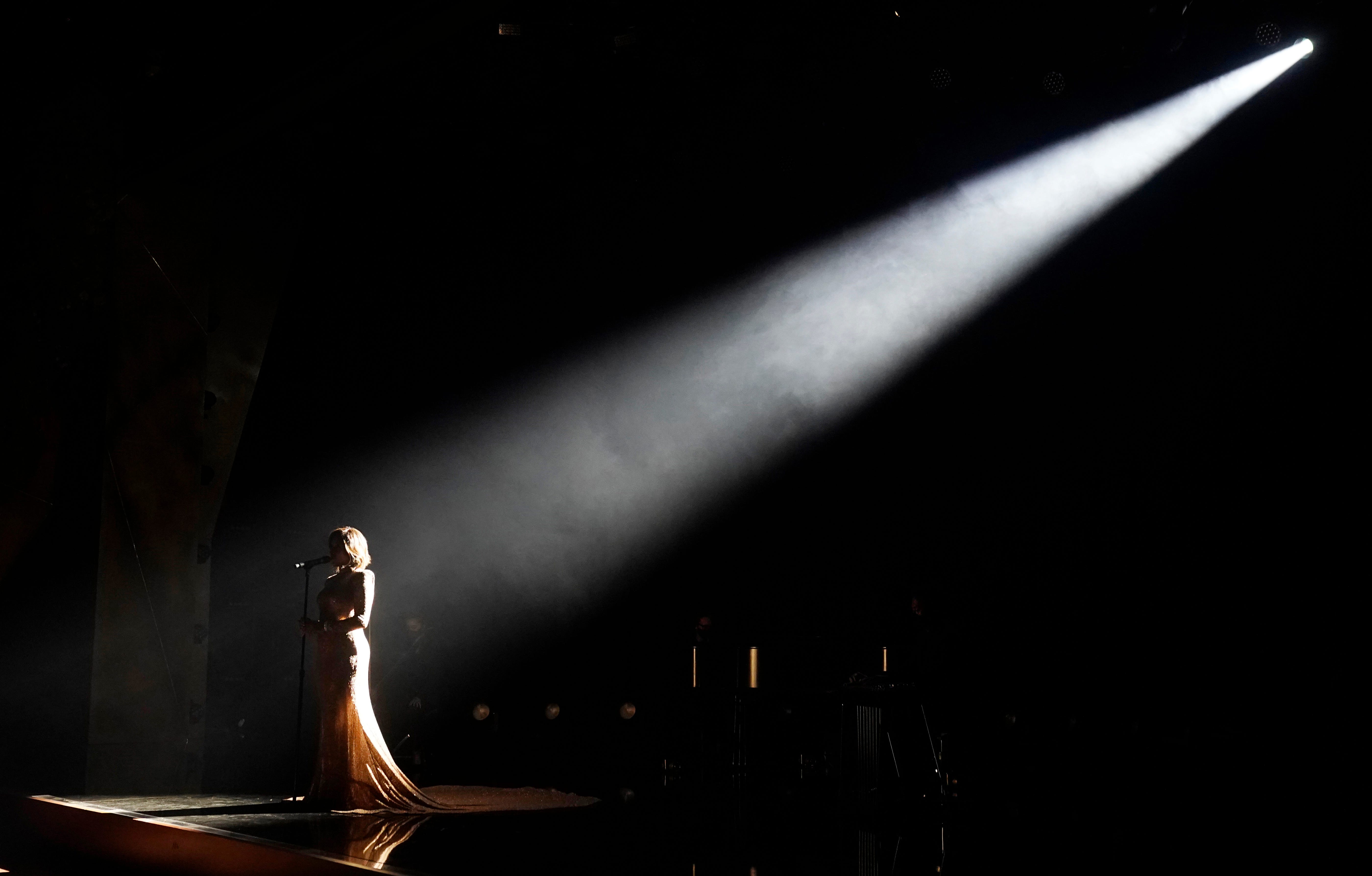
"I just wanted to be the girl next door," she says. "(The girl) that loves country music, got to put out a record, got to go on a big tour with Carrie Underwood, and then have my own tour and just ride off into the sunset."
She didn't imagine the hate mail, the setbacks and the weight of being country's most prominent Black female voice. But she also couldn't have imagined that moment on stage in Nashville, singing about the country she knew and loved.
"To see those people waving their hands, holding up an American flag in the back and putting their arms around each other, that's really what I wanted," she says. "What I've always wanted is for people to see each other."

Hallowed Sound, Vol. 2
Hallowed Sound, Vo1
When Black Folks Get Ahold of Country Music
Source: https://www.tennessean.com/in-depth/entertainment/music/2021/09/23/country-music-black-voices-mickey-guyton-kane-brown-darius-rucker/5646962001/